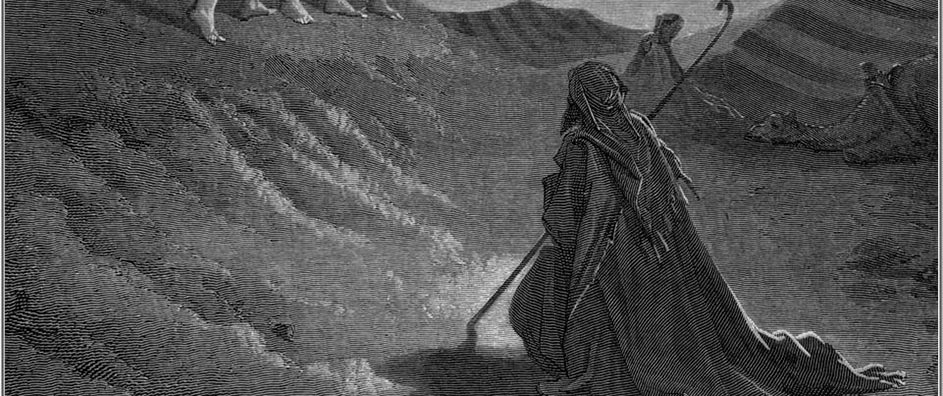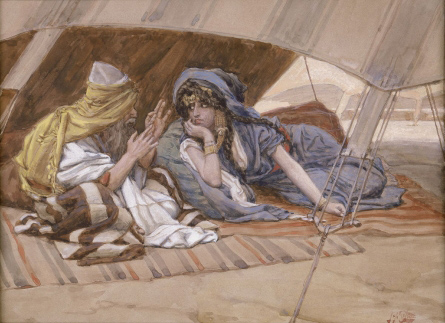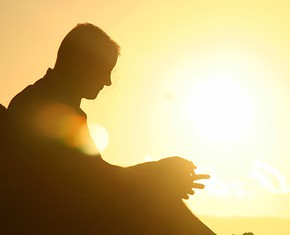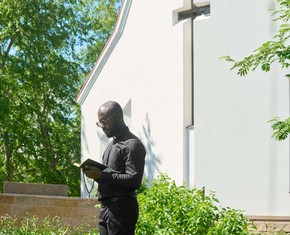The views expressed in our content reflect individual perspectives and do not represent the authoritative views of the Baha'i Faith.
By the time Abraham was released from prison under the sentence of exile, he was old enough to have taken a wife, and so were his brothers. Haran, the youngest of the brothers, had already married and fathered three children—two girls, Milcah and Iscah, plus a boy named Lot. Then, as soon as Haran’s daughter, Milcah, was old enough, Nahor (the middle brother) took her as his wife.
The woman who became Abraham’s wife was named Sarai. After a few years, God would change her name to Sarah, which is the version that will be used throughout this book. According to the Baha’i writings, Sarah was the sister (presumably the much younger sister) of Abraham’s mother, which means that Abraham married his aunt.
The marriages of Nahor to his niece and Abraham to his aunt sound incredibly incestuous to modern ears, but they were perfectly respectable in Ur of the Chaldees because the structure of society and its laws were different. As the Baha’i writings explain:
During the time of the Abrahamic Prophethood it was considered allowable, because of a certain exigency, that a man should marry his aunt, even as Sarah was the sister of Abraham’s mother. During the cycle of Adam it was lawful and expedient for a man to marry his own sister, even as Abel, Cain and Seth, the sons of Adam, married their sisters. But in the law of the Pentateuch revealed by Moses these marriages were forbidden and their custom and sanction abrogated. – ibid, p. 516.
Abraham’s age on his wedding day isn’t known, but using the description in Genesis of Sarah as ten years younger, a reasonable guess is that she was fifteen and he was twenty-five years old. Allowing for the time it took for the youngest brother, Haran, to grow up and then raise a daughter old enough for Nahor to marry, Abraham must have been about thirty-five years old when he angered King Nimrod and was ordered to leave Ur. By then, he and Sarah would have been married for ten years without conceiving any children, which meant that Sarah was considered by all to be hopelessly barren.
According to the Book of Genesis, three family members accompanied Abraham when he left Ur: his wife, Sarah; his father, Terah; and his nephew, Lot, who was the son of Haran. Haran himself, sadly, had no choice about whether or not to join the travelers because he was already dead. According to tradition, he loved his older brother but wasn’t quite sure what to do when Abraham was cast into the flaming pit. Rather than leap in beside him and share his fate, Haran stood aside, dithering. When the flames proved cool and Abraham unhurt, Haran finally jumped, but it was too late. The flames immediately blazed up and incinerated him. – Ginzburg, p. 201.
Having already pondered the nature of Nimrod’s blaze, we are left to wonder about the circumstances of Haran’s reported death. Was his soul consumed by envy, rebellion, and polytheism, making his death a spiritual one that rendered him of no further interest to religious history? Or was he physically dead as well? After four thousand years of uncertainty, the question still hasn’t been answered.
As soon as the group of travelers had strapped carriers on the backs of donkeys, loaded a cart, and checked waterskins for holes, they would have begun their trek, striking out during cool, predawn hours that would give way to a hot and dusty day. Alternatively, they might have packed bags to be loaded on camels while they themselves walked beside the plodding animals as part of a slow-moving caravan. If Sarah tired easily, she could have ridden at least part of the way in a cart pulled behind one of the camels.
Although archaeologists doubt that camels were being bred and trained in Ur itself during Abraham’s lifetime, the animals had already been domesticated in Arabia and are thought to have been used by at least a few Mesopotamian traders.
A third travel possibility would have been a slow-moving boat that was partly sail-powered, partly towed with ropes held by strong men trudging along the riverbank, straining against the current. The boat would follow a longer and more twisting route than the road, but it was far less strenuous for the travelers.
Traveling into an unknown land and toward an unknown future, the little band of exiles and the Messenger of God would make their way into history.

















Comments
Sign in or create an account
Continue with Googleor